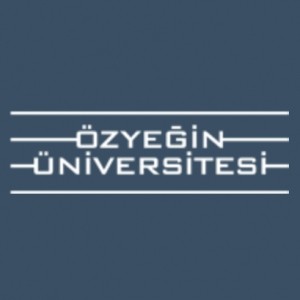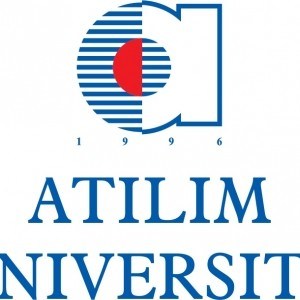Photos of university / #ozyeginuni
The Bachelor of Science in Civil Engineering at Özyeğin University is a comprehensive program designed to prepare students for a successful career in one of the most essential and versatile engineering disciplines. This program combines rigorous academic coursework with practical, hands-on training to equip students with the necessary skills and knowledge to design, construct, and manage infrastructure projects that are vital to modern society. Throughout their studies, students explore core areas such as structural analysis and design, geotechnical engineering, transportation engineering, water resources management, and environmental engineering, ensuring a well-rounded understanding of the field. The curriculum emphasizes the integration of theoretical principles with real-world application, fostering innovative problem-solving abilities and technical competence. Özyeğin University’s state-of-the-art laboratories, research centers, and partnerships with industry leaders provide students with unique opportunities for internships, research projects, and practical experiences, enabling them to bridge the gap between academic knowledge and professional practice. Additionally, the program encourages development of essential skills such as project management, teamwork, communication, and ethical responsibility, preparing graduates to lead and innovate in their future careers. With a focus on sustainability and resilience, the Civil Engineering program aims to produce engineers capable of designing environmentally friendly and sustainable infrastructure that meets the needs of society while respecting natural resources. Graduates of this program are well-positioned to pursue careers in consulting firms, construction companies, government agencies, or to continue their education through master's and doctoral programs. At Özyeğin University, the Civil Engineering bachelor’s program is committed to fostering a learning environment that promotes academic excellence, creativity, and professional growth, ensuring students are fully prepared to contribute effectively to the development of infrastructure projects both locally and globally.
Detailed Course Facts
Application deadline August 23 Tuition fee- EUR 6800 Year (International)
$ 8,900
Start date September 2015 Credits (ECTS) 240 ECTSDuration full-time 48 months Languages Take an IELTS test
- English
Course Content
The freshman year builds a foundation in mathematics, physics, chemistry, technical drawing and computing, and provides an introduction to the concepts of Civil Engineering with a course in each semester. In the sophomore year, students advance their fundamental engineering skills and start working on the foundations of Civil Engineering, including the basics of construction management and transportation. At the end of the sophomore year, OzU Civil Engineering students will have completed their first summer internships. During their internships, students may either opt to familiarize themselves and contribute to a specific sector at the industry or help faculty in their research projects.
In the junior year curriculum, students are provided with compulsory courses on structural analysis, reinforced concrete, soil mechanics, and foundation engineering. Students also start taking electives in their areas of specialization and have the opportunity to put their theoretical knowledge into practice in the civil engineering laboratories. At the completion of their junior year, OzU students will be as effective as entry level engineers, and they will have no difficulty finding the most suitable positions for their second summer internships. The junior year program also covers additional business topics and in-depth communications courses to develop students ability to effectively write and speak in English. The senior year curriculum is mostly allocated to advanced design courses as well as advanced elective courses to prepare students for the challenges in the field.
Tracks
The Civil Engineering program offers a carefully selected set of tracks including structural engineering, geotechnical engineering, construction management and transportation. Structural engineering is a crucial field of engineering with a vast field of application, aiming to minimize casualties, property damages, and economic losses, particularly due to earthquakes. Ongoing seismic retrofitting and rehabilitation projects undertaken in several cities across Turkey, including Istanbul, naturally, give rise to a high demand for structural engineers. The geotechnical engineering, construction management and transportation tracks are also highly promising fields of civil engineering, dedicated to create affordable and sustainable solutions for rapidly growing cities. Our program takes pride is its distinguished faculty in each of its tracks.
Lecturers
Atilla Ansal
Professor - Department HeadProfessor Ansal received his Diploma Engineering degree on Civil Engineering from Istanbul Technical University in 1969 and his Ph.D. on Geotechnical Engineering from Northwestern University, USA in 1977. He was promoted to Associate Professorship in 1982 and to Professorship in 1988 in Istanbul Technical University. He moved to the Earthquake Engineering Department of Kandilli Observatory and Earthquake Research Institute of Bogaziçi University in 2002. Since March 2012 he is working as full time professor in the Engineering Faculty of Ozyegin University. He served as visiting professor and researcher in different institutions in Norway, Portugal, Italy, Japan, USA and UK for extended periods of time during his academic career.
Atilla Ansal has been the Secretary General of European Association for Earthquake Engineering (EAEE) since 1994. He started the publication BEE in 2002 as the Chief Editor with Kluwer Publishers which later became part of Springer. BEE became one of the SCSI indexed journals and got its first impact factor in 2007. Ever since the 2007, the impact factor of BEE kept increasing and in 2011 was 1.559 which happen to be the second highest among SCSI Indexed earthquake engineering journals. Since 2010 BEE is being published as 6 issues per year. In addition he is the Editor in Chief of the popular book series by Springer on "Geotechnical, Geological and Earthquake Engineering".
He published over 200 papers in journals, conference proceedings, books and as research reports on soil mechanics, soil dynamics, microzonation, liquefaction, site amplification, earthquake hazard scenarios. He was the Graduate Advisor for 13 Ph.D.Thesis, 24 M.S Thesis.
E-mail: atilla.ansalozyegin.edu.tr
Phone: 216 5949499
Ragip Akbas
Assistant ProfessorRagip Akbas finished his undergraduate and master's degree at Bogazici University Civil Engineering department. He obtained his PhD from Stanford University in 2003 in Civil and Environmental Engineering department with emphasis on computational methods for construction. In his doctoral dissertation, he defined a new geometry-based modeling and simulation approach for construction. He has extensive work experience in the industry, including a software start-up company in Silicon Valley, an engineering consultancy company, and the R&D department of Walt Disney Imagineering. Before OzU, he has held various roles at Autodesk, Inc., the leading software company for the Architecture/Engineering/Construction industry. He also held short-term postdoctoral and visiting scholar positions at Stanford University. His research interests include automation in construction,
modeling and simulation, machine learning and computer graphics applications in engineering.
E-mail: ragip.akbasozyegin.edu.tr
Phone: +90 216 564 93 81
Bülent Erkmen
Assistant ProfessorDr. Bulent Erkmen received his B.Sc. from Middle East Technical University, Department of Civil Engineering in 2001, and M.S. and Ph.D degrees in Civil Engineering from University of Minnesota in 2004 and 2008, respectively. Dr. Erkmen was working as a structure engineer consultant in Houston, TX for oil and energy industry from 2004 until he joined OzU. His area of specialty ranges in a broad spectrum including seismic evaluation of innovative concrete wall structural systems; seismic and blast evalaution and retrofit of existing structures; testing and evaluation of new construction materials such as self-consolidating concrete for prestressed bridge girder, presstress losses including concrete creep and shrinkage; short and long-term structural monitoring; performing large scale laboratory testing; and finite element analysis and evaluation of Generation III+ nuclear reactor shield building. His research focuses on seismic performance of precast concrete shear walls, self-consolidating concrete, fluid-structure interaction, and blast performance of structural systems.
E-mail: bulent.erkmenozyegin.edu.tr
Yasemin Sengül
Assistant ProfessorDr. Sengül received her B.S. and M.S. degrees in 2005 and 2006, respectively, from the Department of Mathematics in Bilkent University. She completed her D.Phil. in Mathematics at the Mathematical Institute in the University of Oxford in 2011. Her dissertation is on the analysis of nonlinear partial differential equations, more specifically, on the dynamics of microstructure in solids modeled by nonlinear viscoelasticity. Before joining Özyegin University she worked as a post-doctoral researcher at the Centre for Mathematics in the University of Coimbra. Her research interests also include gradient flows, calculus of variations and infinite-dimensional dynamical systems.
E-mail: yasemin.sengulozyegin.edu.tr
Phone: +90 216 564 9498
Haluk Özener
ProfessorProf. Özener completed his Bachelor's Degree in Geodesy and Photogrammetry Engineering from Istanbul Technical University in 1988. He obtained M.Sc. and Ph.D. in Geodesy from Kandilli Observatory and Earthquake Research Institute of Bogazici University in 1992 and 2000, respectively. He served two times, one of which was during his doctoral studies, as a guest researcher at the Massachusetts Institute of Technology. He was promoted to Associate Professorship and Full Professorship in 2003 and 2009, respectively.
Prof. Özener's main research interests are geodesy, GPS, geodynamics, tectonics, earthquake hazards, deformation of engineering structures, bathymetric surveying, Geoinformation Systems/GIS applications, and stochastic modeling. Prof. Özener has contributed to around 40 national and international projects as a project manager or a researcher. He has supervised around 20 master's and doctorate theses. Prof. Özener has served in more than 30 national and international conference committees as a chair, member, scientific commission member or consultant. He has authored over 150 publications including 120 international publications. Prof. Özener is currently the Chair of Earthquake Association, Chair of the Tectonics and Earthquake Geodesy Sub-Commission of International Association of Geodesy (IAG), Chair of the Geodynamics Working Group of Turkish National Geodesy Commission, Chair of TMMOB-HKMO Geodesy and Navigation Commission, and Chair of International WEGENER Working Group. Furthermore, Prof. Özener also still serves as the Vice Director of Kandilli Observatory and Earthquake Research Institute of Bogazici University and Chair of the Geodesy Department.
E-mail: haluk.ozenerozyegin.edu.tr
English Language Requirements
IELTS band : 6.5 CAE score : 60(Grade C)
To study at this university, you have to speak English. We advice you to
take an IELTS test. More About IELTSRequirements
Foreign students are admitted to the institutions of higher education in Turkey on condition that applicants fulfill the requirements for student admission determined by the relevant institution of higher education and approved by the Council of Higher Education.
The applications from following students will be accepted:
- foreign students who are either high school graduates or are studying their last year in high school,
- students with dual nationality who abandoned their Turkish or TRNC citizenship and who complete their entire high school education abroad
- citizens of TRNC who have completed their entire high school in TRNC and have GCE A/L result
The applications from following students will not be accepted:
- Turkish citizens,
- TRNC citizens (except the students who have completed their entire high school in TRNC and have GCE A/L result),
- Students with dual nationality one of which is Turkish,
- Students with dual nationality one of which is TRNC (except the students who have completed their entire high school in TRNC and have GCE A/L result),
- Students with dual nationality who abandoned their Turkish citizenship and who have completed their entire high school education either in Turkey or TRNC,
- Students with dual nationality who abandoned their TRNC and who have completed their entire high school education either in Turkey or TRNC (except the students who have completed their entire high school in TRNC and have GCE A/L result),
- Students with dual nationality who abandoned either their Turkish or TRNC citizenship and who graduated from the Mission schools in Turkey
- Students expelled from an in institutions of higher education in Turkey due to disciplinary action.
Work Experience
No work experience is required.
Related Scholarships*
- Academic Excellence Scholarship
"The Academic Excellence Scholarship can provide up to a 50 % reduction in tuition per semester. These scholarships will be renewed if the student maintains superior academic performance during each semester of their 3-year Bachelor programme. The scholarship will be directly applied to the student’s tuition fees."
- Alumni Study Travel Fund
Scholarships for students who are already attending the University of Reading.
- Amsterdam Merit Scholarships
The University of Amsterdam aims to attract the world’s brightest students to its international classrooms. Outstanding students from outside the European Economic Area can apply for an Amsterdam Merit Scholarship.
* The scholarships shown on this page are suggestions first and foremost. They could be offered by other organisations than Ozyegin University.
Funding
Self or government funding, sports scholarships. Very limited number of entry scholarships are available for international students
There are scholarships available based on International Baccalaureate, ABITUR, Matura and French Baccalaureate diplomas, completion of AP program and performance in International Science Olympiads. You will also have the opportunity to improve your scholarship status after admission to OzU by demonstrating high academic performance in your classes (academic merit scholarships).
The Civil Engineering undergraduate program at Özyeğin University is designed to provide students with a comprehensive education in the fundamental principles and practical applications of civil engineering. The program aims to equip students with the necessary skills to design, analyze, and supervise the construction of infrastructure projects such as buildings, bridges, roads, dams, and water supply systems. The curriculum combines theoretical courses in physics, mathematics, and engineering sciences with practical laboratory work and project-based learning, fostering critical thinking, problem-solving, and innovative design capabilities.
Students gain hands-on experience through laboratory experiments, computer-aided design (CAD), and real-world projects that simulate industry conditions. The program emphasizes sustainable development and environmental considerations, preparing graduates to address contemporary challenges related to urbanization, climate change, and resource management. Additionally, the curriculum includes courses in construction management, materials science, geotechnical engineering, structural analysis, hydraulics, and transportation engineering.
Faculty members are experienced professionals and researchers committed to providing quality education and mentorship. The program encourages participation in internships and industry collaborations to enhance practical knowledge and employment prospects. Graduates of the Civil Engineering program at Özyeğin University are well-equipped to pursue careers in engineering consulting firms, construction companies, government agencies, or to continue their education through graduate studies. The university's modern campus, state-of-the-art laboratories, and active industry partnerships create an optimal learning environment that aligns academic knowledge with real-world applications, ensuring students are prepared for successful careers in civil engineering.










